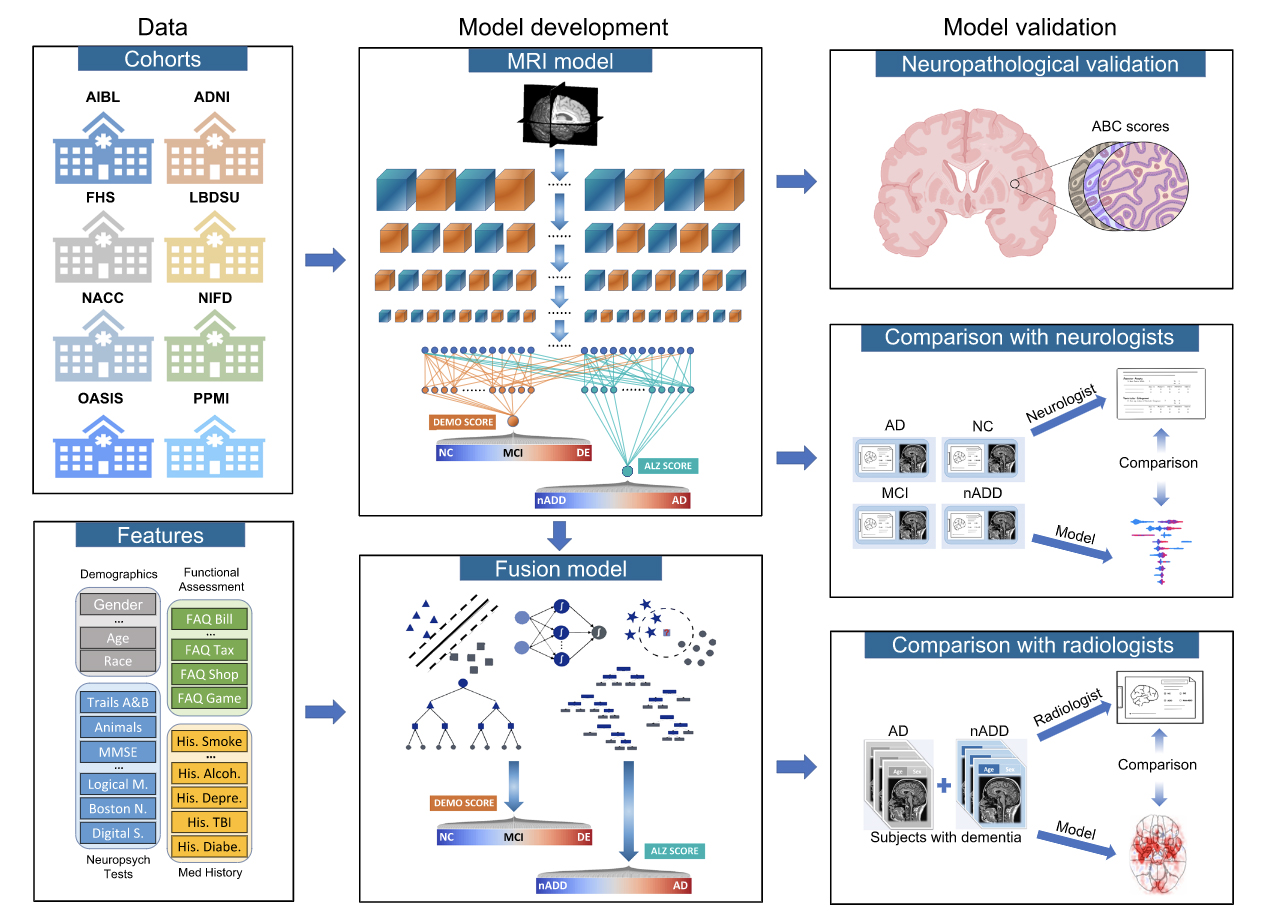UNMC researchers, along with national and international leaders, recently published a study on identifying dementia through deep learning computer models.
The study, "Multimodal deep learning for Alzheimer’s disease dementia assessment," published in the highly recognized Nature Communications journal, looked at persons with normal cognition, mild cognitive impairment, Alzheimer’s disease and non-AD dementias and ways to improve the diagnosis.
The team from the UNMC Department of Neurological Sciences included Daniel Murman, MD, Arun Swaminathan, MD, Olga Taraschenko, MD, PhD, and former colleague Sachin Kedar, MD, MBBS.
With nearly 10 million new cases of dementia diagnosed annually, new measures are needed to clarify the various causes of these devastating conditions, the researchers wrote in their article.
"This study will allow us to move forward with further real-life validation of the created artificial intelligence algorithm that can be subsequently applied in the resource-poor settings with no available specialists in dementia," Dr. Taraschenko said.
 |
| Modeling, development and overall strategy used to validate the deep learning framework. (Click image to enlarge.) |
The group, using routinely collected clinical information such as MRI scans, demographics, medical history, functional assessments and neuropsychological tests, developed deep learning models on various classification tasks.
The interpretability methods using artificial intelligence modeling showed high accuracy in disease-specific patterns of degenerative changes throughout the brain that closely correspond to neuropathological lesions at autopsy.
Drs. Swaminathan, Murman and Taraschenko were among the clinicians who reviewed and validated neuropsychological assessments, patients’ histories and their imaging studies that were compared to the machine learning models developed in the study.
To confirm the models used in this study to assess dementia status, observational studies in memory clinics are being planned. Confirmation of machine learning for Alzheimer’s disease diagnosis and care would provide another screening tool for health care providers.
The team recognizes the limitations of the study, such as cases of mixed dementia or comorbidities, and future work may include multi-label classifications.
The project was supported by grants from the Karen Toffler Charitable Trust, the Michael J. Fox Foundation, the Lewy Body Dementia Association, the Alzheimer’s Drug Discovery Foundation, the American Heart Association and the National Institutes of Health.

Congratulations Dan, Arun and Olga, on your work and publication, this is really terrific!
Thank you!